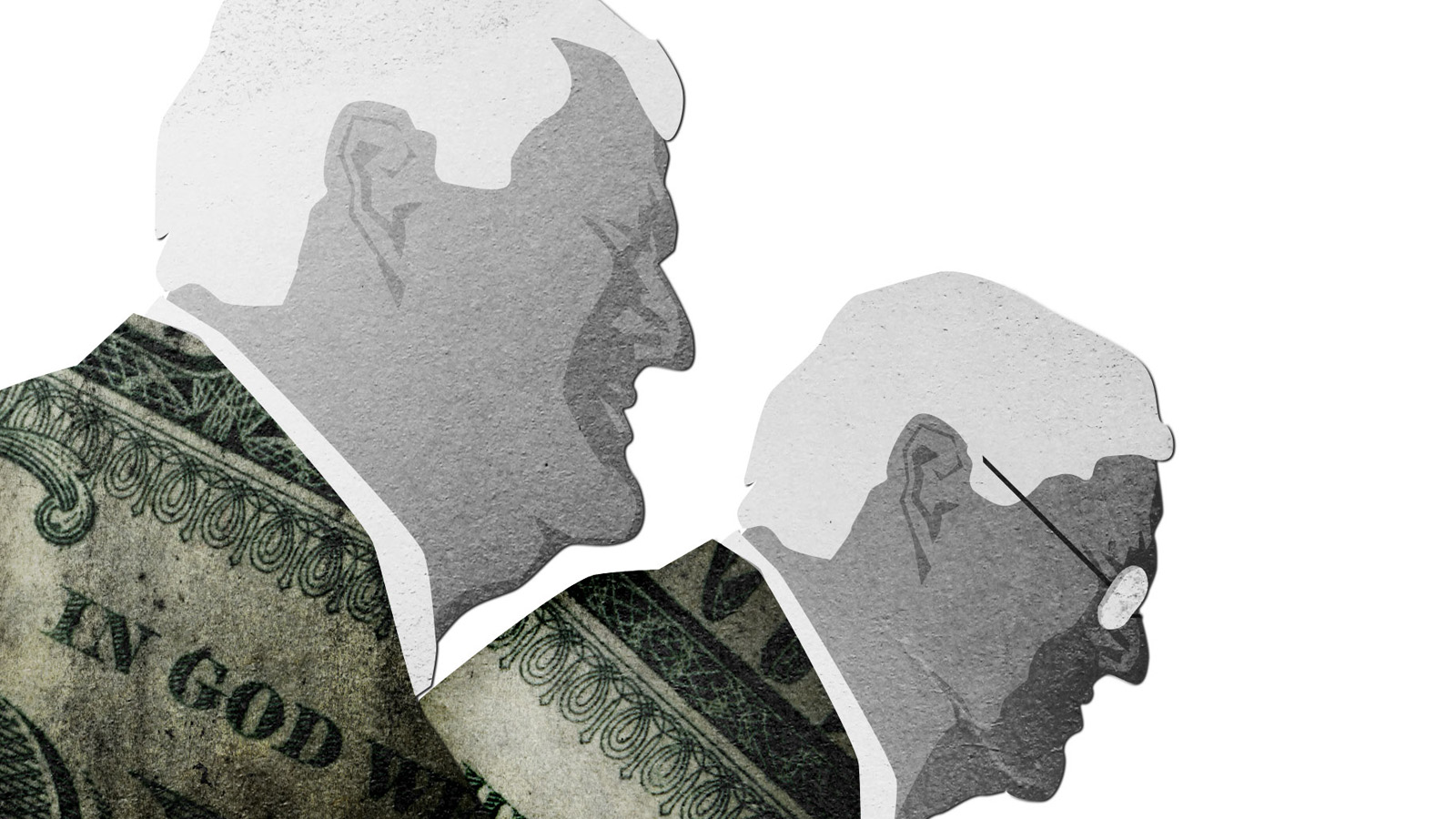Normally when we hear about Charles and David Koch making it rain from their multi-billion dollar empire, it’s to adorn Tea Party candidates during campaigns or to fund free-market advocacy organizations like Americans for Prosperity. But earlier this month, the Koch Bros., as they’re affectionately called, dropped $25 million on the United Negro College Fund (UNCF), to aid scholarships for black students and to help historically black universities. It was the fifth largest donation UNCF has received in its seven decades of existence as the preeminent scholarship source for low-income African Americans.
This is probably not exactly what Ta-Nehisi Coates meant by reparations. Given that the Kochs are dead set against addressing problems that most Americans, including most African Americans, find important, like climate change, some view the Koch/UNCF transaction as something more diabolical. Perhaps it’s a PR ploy, part of the Kochs’ $300 million plan to make opposition to regulating greenhouse gas emissions popular among voters. Consider the Kochs have been pay-pals to organizations like the American Legislative Exchange Council (ALEC), which not only campaigns against environmental regulations, but also promotes state laws that undermine African Americans’ voting rights.
https://twitter.com/DaHomieK/status/475395695650684928
Political commentator Julianne Malveaux asked if UNCF “made a deal with the devil” by signing black students’ lives over to the Kochs. She compared the donation to the Los Angeles NAACP chapter accepting donations from Don Sterling, the embattled L.A. Clippers owner who was recorded making racist comments.
In an op-ed in Inside Higher Ed, Marybeth Gasman, director of the University of Pennsylvania’s Center for Minority Serving Institutions, argues that UNCF should give the money back. The UPenn professor wrote the 2007 book Envisioning Black Colleges: A History of the United Negro College Fund, and has served on a number of UNCF-related advisory boards, including that of the Frederick D. Patterson Research Institute, whose research UNCF cites in justifying the need for the scholarship donation.
Meaning, Gasman is well aware that UNCF is in such dire straits lately that it has had to deny nine out of 10 scholarship applicants due to financial constraints. She still opposes the Koch contribution.
“Yes, $25 million is alluring and could be used to help black students,” Gasman wrote. “However, the costs are too high. … The Koch brothers have given huge amounts of money to Tea Party candidates who oppose many policies, initiatives, and laws that empower African Americans.”
Prof @marybethgasman challenges the Koch brothers' @UNCF donation in @insidehighered http://t.co/PRlhf1h5If #uncf pic.twitter.com/J00naZI7DJ
— Penn GSE (@PennGSE) June 12, 2014
In an interview today, Gasman compared the situation to “handcuffing one arm of a person behind their back and then handing them a steak to eat with their other arm.”
UNCF President Michael Lomax responded to his critics in an interview with the anti-government regulation organization American Enterprise Institute. “Criticism is a small price for helping young people get the chance to realize their dream of a college education,” he said, “and if I’ve got to bear the brunt of someone else’s criticism to ensure that we have the resources to help those students, then I can handle it, and I can take the heat.”
It’s hard to argue with that logic. Lomax is not exaggerating when he said, “How low-income kids are going to pay for college, I think, is a national emergency.”
An April 22 report from Gasman’s Center for Minority Serving Institutions, “America’s Public HBCUs: A Four State Comparison of Institutional Capacity and State Funding Priorities,” makes the observation:
“On average [Historically Black Colleges and Universities] continue to be funded at lower levels than [Predominantly White Institutions]. This is particularly troubling given that HBCUs serve predominantly low-income students, whose families have fewer resources to pay for education. … Louisiana severely cut funding to all public 4-year institutions, but HBCUs were hit the hardest. For example, in 2012 Grambling State University and Southern University at New Orleans, both HBCUs, received 36% and 35% less funding, respectively, than they did in 2007.”
The Kochs for their part — specifically Koch Industries, Inc. and the Charles Koch Foundation — say their gift is meant to help alleviate those funding shortfalls. And there, you might argue, is the legerdemain: Koch supports ALEC’s heavy promotion of privatizing college education and decreasing public funding of state colleges; and then Koch supplies privately financed scholarships when it actually happens.
For the $25 million, $6.5 million of that is for “general support” of HBCUs and UNCF, $4 million of which is to offset federal reductions in the PLUS parent loan program, which HBCU students rely heavily upon. The other $18.5 million will go toward the scholarships.
The Koch program asks that its scholarship recipients explore “how entrepreneurship, economics and innovation contribute to the well-being of individuals, communities and society.” Sounds innocuous enough, but “well-being” has a specific meaning in the Koch world. As this page from the Charles Koch Foundation website explains, it’s basically a free-market theory around “economic freedom” that credits private capital and technological innovation with solving everything. This includes environment, as their economicfreedom.org site attests, though narrowly defined mainly as waste, and nothing on climate change.
The Kochs will have two of their own representatives sitting on the review committee for scholarship applicants, along with two UNCF reps and someone from one of UNCF’s partner universities. It’s normal for donors to target financial assistance toward certain subject areas. But given the Koch’s political backgrounds, will they also screen for prospects who’ll serve their agenda? Meaning, if an applicant wishes to pursue economics and innovation in college but toward the goal of addressing climate change, will they be disqualified? Do the Koch reps on the scholarship review committee have that kind of veto power?
Anthony Owens, UNCF’s listed staff member on the Koch Scholars press release, told me that there is objective criteria for the scholarships, but that they couldn’t list all of it on the website. He told me to forward any other questions by email, which I did — including those asked above — but he did not respond. I made repeated calls to the Koch staff members listed on the press release and left numerous messages, but have received no responses from them, either.
The salient questions here (which I sent to UNCF) are:
- What strings are attached to the scholarships?
- Did the Kochs make their donation contingent upon sitting their own reps on the review board?
- Can scholarship recipients pursue goals that run counter to the Kochs’ political agenda, like addressing climate change?
No one disputes the need among low-income, black college students for financial aid. But in this case, the devil could really be in the details.




